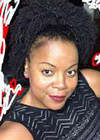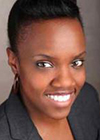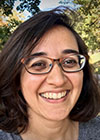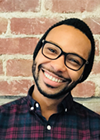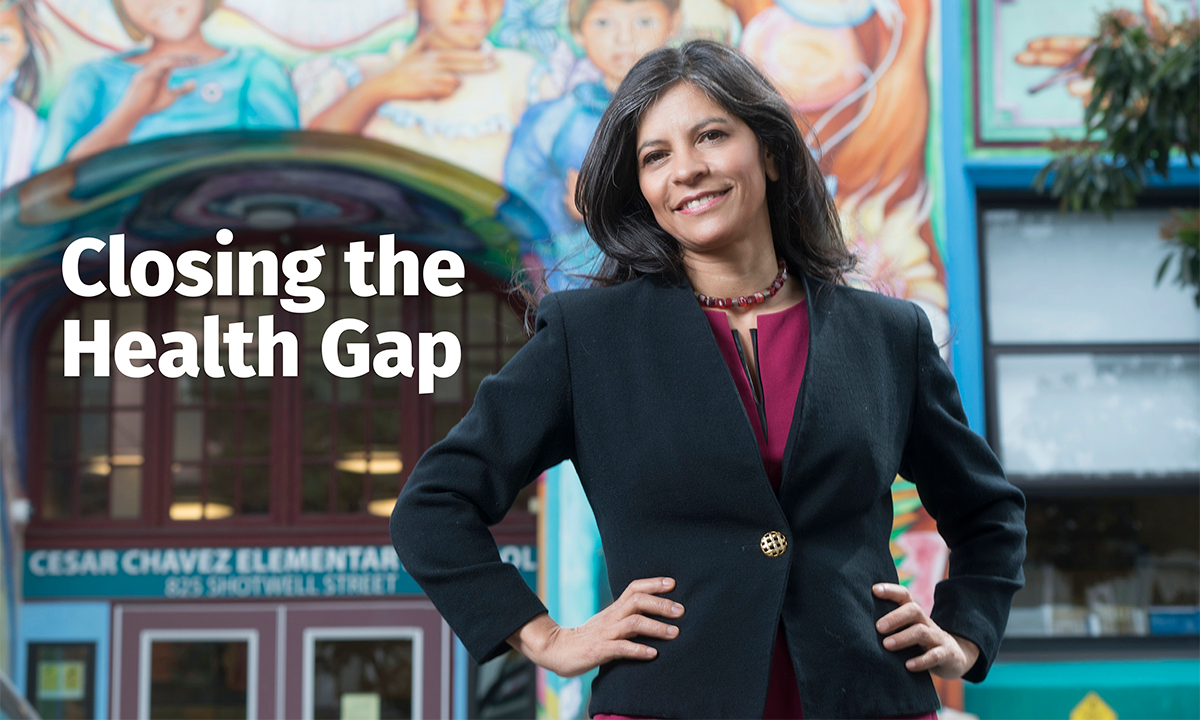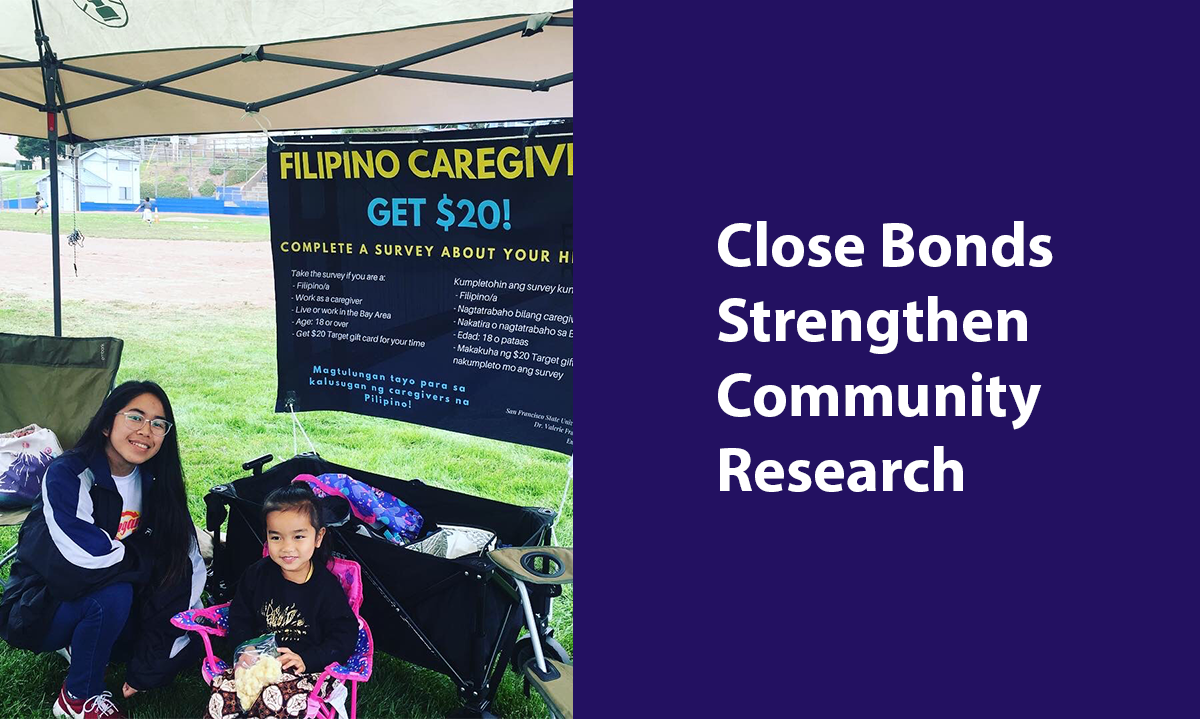Research that informs policy
Seeking to deepen her knowledge and scientific skills, Sanchez-Vaznaugh followed her MPH with a doctoral degree at Harvard, where faculty members were leaders in the field of social epidemiology. There, she focused on methodologies, diving into biostatistics — which numbers are important and how to crunch them — and learning how to structure studies that would stand up to rigorous peer review.
With her top-notch resume and research skills, Sanchez-Vaznaugh would have had many opportunities available to her. Why did she choose to come back to SF State?
“We had very meaningful conversations about disparities in a very innovative way — intellectual ideas about how you studied disparities,” she says, adding that some colleagues and many students across the University come from diverse populations. “We have a rich experience here.”
In her research, Sanchez-Vaznaugh continues that innovative approach, investigating, for example, not just the policies that lead to good outcomes, but how those policies get enacted. In a current study, her team is surveying schools serving immigrant and low-income populations to better understand why they’re effective in supporting physical activity among students. Much is known about the benefits of physical activity for health and for learning, “But we don't know a lot about how successful schools make decisions about how to implement physical activity for their students. What stimulated those decisions? If we understand that process perhaps other schools across the nation and maybe the world can replicate that success,” she says.
Next, Sanchez-Vaznaugh launches a $3.2 million, five-year National Institutes of Health (NIH) study that was awarded this February. With partners at the University of Michigan, she’ll be analyzing 16 years of health data to understand the effects of nutrition policies and community environments on childhood health disparities. It’s an enormous undertaking, but one thing that motivates Sanchez-Vaznaugh to take it on is that the research can actively inform policy — it won’t sit on the shelf gathering dust.
“It's very important to monitor, reduce and maybe even eliminate child health disparities now, because if they continue unabated, they will have a domino effect on a lot of segments of society.”
That’s important for everyone, she points out, not just for the populations at the disadvantaged end of the social spectrum. A sick childhood population will impact all of society in the future — including employment, work productivity, health care costs, the military and, by association, national security. Given that children are the most diverse segment of the population, she says, “It's very important to monitor, reduce and maybe even eliminate child health disparities now, because if they continue unabated, they will have a domino effect on a lot of segments of society.”
Universities play a key role
Love says Sanchez-Vaznaugh’s ability to land major grants like the NIH study is highly unusual in the Cal State system, where the focus is on teaching more than research. “She’s getting highly competitive grants that support her insightful queries of large data sets,” Love says. “Her work is game-changing — it’s the result of her passion for both health and social justice. She’s receiving state and national attention for her knowledge and expertise.”
Sanchez-Vaznaugh acknowledges that the enormous support she’s received at the College of Health & Social Sciences has made pursuing research like this possible. She says universities play a central role in reducing economic- and race-based health disparities: they produce research that informs policies; train practitioners for hands-on programmatic work; and train new generations of leaders.
Her own story is just one example, she says. In addition to supporting her research on disparities, “[SF State] trained me and shaped me so that I could be competitive for a Harvard application, and has faculty who really care about their students.”
She’s gratified, both personally and professionally, to continue that cycle, seeing her students discover themselves and the field of health disparities. “It's just wonderful that I get to see that same flourishing that I went through,” she says, adding that for universities to close the health gap, “they must continue to train people who deeply care about this work — that it's not just a job, but it is something that we really need to do to have a better society, a better country and a healthier population.”
